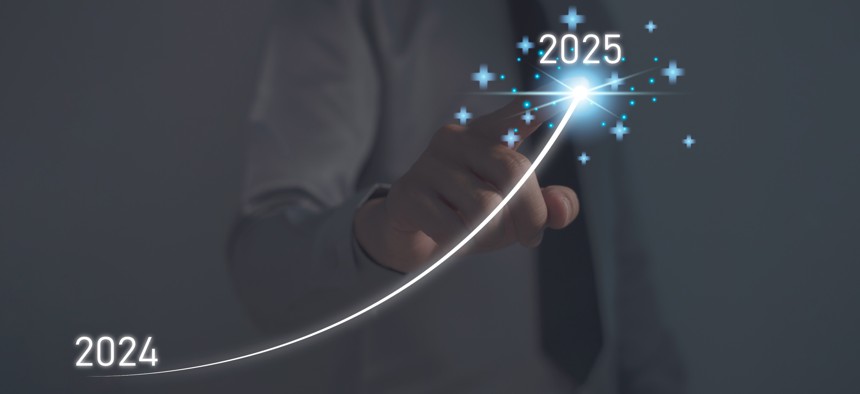
The Biden administration's proposed 2% pay raise for federal employees in fiscal 2025 remains far afield from what some employee unions have been calling for. Thanadon Naksanee / Getty Images
Employee groups air their disappointment with Biden’s 2% raise proposal
Multiple groups representing federal employees expressed their displeasure this week at the White House’s proposed pay raise, noting that it falls both behind the cost of inflation and military compensation.
While there were some spending priorities in the president’s fiscal 2025 budget request welcomed by public sector unions and employee groups, the White House’s proposed 2% pay raise wasn’t one of them.
After pegging its proposed pay raise north of 4% for the past two years, including a historic 5.2% last year, the Biden administration opted for a more measured approach to the civilian workforce on Monday, drawing disappointment from some groups and disgust from others.
“This below-market pay increase fails to reflect trends in the private sector, where wages and salaries have risen, and unemployment rates are low. Nor does it keep up with persistent inflation, leaving civil servants with diminished purchasing power,” said William Shackelford, president of the National Active and Retired Federal Employees Association, in a statement.
“It’s one thing when federal workers are the first to see pay freezes and reduced pay raises when the economy is weak, but it’s particularly disappointing to see the level of this pay raise amid an overheated economy.”
The proposed budget, which is unlikely to be accepted by Congress at its current levels, comes as the White House pushed through the largest pay increase for federal employees since 1980 last December with its 5.2% hike amid uncertainty in the House prior to the election of Speaker Mike Johnson.
However, that figure remains well below what employee unions have been proposing and what legislation like the Federal Adjustment of Income Rates Act has called for, which is more in the ballpark of 7.4%.
Perhaps more unsettling for the groups was the budget’s divergence between civilian and defense workforce compensation, where the latter received a proposed 4.5% raise, casting aside Democrat precedence for attempting to maintain salary parity between uniformed and federal personnel.
“For very good reasons, pay parity has a longstanding tradition and should be honored in 2025. While feds received a bigger boost in 2024, federal pay continues to lag far behind inflation, and retention of feds remains a severe risk, said Craig Carter, national president of the Federal Managers Association, in a statement. “The Federal Salary Council reported in November 2023 that federal workers earned more than 27 percent less than private sector counterparts, a growing disparity that will only force more of the best and brightest out of federal service.”
While the 2023 Federal Employee Viewpoint Survey showed that employee engagement and job satisfaction were improving, there are still concerns about the widening pay gap between private and public sector employees.
Bureau of Labor Statistics data from November showed that the pay gap had expanded further, with federal workers making 27.54% less on average than their private sector counterparts, and without compensation keeping pace with at least inflation, employee groups are concerned that there could be a dearth of talent at agencies.
Carter also said that FMA supports the work the Biden administration is doing in other areas to help make it easier for agencies to hire good talent, such as its work to remove the cap on Federal Wage System employees and to address pay compression issues.







